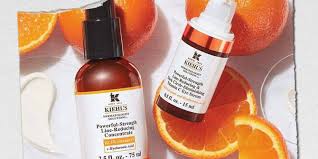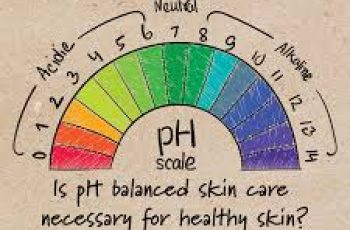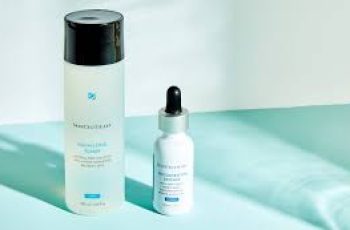
Can Hyaluronic Acid Be Used with Vitamin C Oil? Here’s What You Need to Know
Hyaluronic acid (HA) and vitamin C are two of the most powerful skincare ingredients you can use.
They work brilliantly on their own—but together, they’re even better.
When combined correctly, these ingredients can brighten, hydrate, and protect your skin.
But knowing how and when to apply each one is the key to getting the best results.
This post will explore whether hyaluronic acid can be used with vitamin C oil, and if so, how to layer them effectively.
What Is Hyaluronic Acid?
Hyaluronic acid is a moisture-binding molecule that occurs naturally in your skin.
It can hold up to 1,000 times its weight in water, making it a super hydrator.
It keeps your skin plump, smooth, and glowing by retaining water in the skin.
HA is suitable for all skin types, including dry, oily, sensitive, and acne-prone skin.
It’s usually found in water-based products like serums, gels, and moisturizers.
What Is Vitamin C Oil?
Vitamin C is a powerful antioxidant that fights free radical damage from UV rays and pollution.
It also helps fade dark spots, brighten skin tone, and support collagen production.
Vitamin C oil is a type of vitamin C formulation suspended in an oil base rather than water.
Oils help to nourish and protect the skin, especially in dry or mature skin types.
Unlike serums, oil-based vitamin C takes longer to absorb and usually comes last in your routine.
Can You Use Hyaluronic Acid and Vitamin C Oil Together?
Yes, you can safely use hyaluronic acid and vitamin C oil in the same skincare routine.
They complement each other very well—hydration from HA and antioxidant protection from vitamin C.
However, the order in which you apply them is crucial to getting maximum benefits.
Which Goes First: Vitamin C Oil or Hyaluronic Acid?
If your vitamin C is in serum form, apply it before hyaluronic acid.
This allows vitamin C to penetrate your skin and fight environmental damage.
Hyaluronic acid goes next to lock in hydration and support the skin barrier.
But if your vitamin C is in oil form, the rules change.
HA should be applied first, as water-based products go on before oil-based ones.
Oil forms a barrier on the skin that HA can’t penetrate—so HA must go on first.
Remember: always apply products from thinnest to thickest consistency.
That means starting with cleanser, toner, HA serum, then vitamin C oil, and finally moisturizer and SPF.
Can You Use Oil and Hyaluronic Acid in the Same Routine?
Yes, you absolutely can use both in one routine—as long as you layer them properly.
HA loves water and needs it to function correctly.
Applying oil before HA can block it from reaching your skin effectively.
Oil and water don’t mix, so HA won’t absorb properly if you use oil first.
Instead, apply HA on damp skin and follow with face oil to seal in moisture.
The oil acts like a lid that locks everything in, keeping your skin hydrated and protected.
How Should You Apply Hyaluronic Acid for Best Results?
Always apply hyaluronic acid to slightly damp skin.
This helps it absorb moisture from the environment and pull it into your skin.
Don’t apply it on bone-dry skin, or it may draw moisture from your deeper layers, causing dryness.
Follow with a moisturizer or oil to trap the moisture and keep your skin barrier healthy.
HA works best when used consistently—morning and night.
Is It Necessary to Moisturize After Using Hyaluronic Acid?
Technically, HA hydrates your skin—but it doesn’t seal that hydration in.
To prevent water from evaporating, apply a moisturizer or facial oil after HA.
Moisturizers act as a protective barrier to keep your skin plump and hydrated.
Using both ensures that hydration stays where it belongs: inside your skin.
Can You Use Hyaluronic Acid with Other Oils?
Yes, HA works well with most facial oils, not just vitamin C oil.
Just follow the same rule—HA first, then oil.
Some popular facial oils include rosehip, argan, jojoba, marula, and squalane.
These oils help support the skin barrier and prevent moisture loss.
Using HA and oils together provides deep hydration and skin nourishment.
Can You Use a Vitamin C Serum Every Day?
Yes, vitamin C can be used daily—your skin will love it.
Start slowly, applying it every other day, especially if you have sensitive skin.
Once your skin adjusts, use it every morning to protect against free radical damage.
Vitamin C boosts radiance, fades pigmentation, and helps fight signs of aging.
It’s best used in your morning routine, right after cleansing and before SPF.
Use 3–5 drops across your face and neck and let it absorb before applying other products.
Can You Use Too Much Hyaluronic Acid?
Yes, even too much of a good thing can backfire.
Overusing HA or applying it incorrectly can make skin feel tight or dehydrated.
This happens when it pulls water from your deeper skin layers if there’s no moisture on the surface.
That’s why applying it to damp skin and sealing it with a moisturizer is so important.
Follow the instructions and don’t apply multiple HA products in the same routine.
Can You Replace Moisturizer with Face Oil?
Face oils are not the same as moisturizers—but they can be a great addition.
Oils don’t add hydration on their own but help lock it in.
If you’re using HA and a face oil, applying both is ideal.
Use HA on damp skin, then layer a light moisturizer followed by a few drops of facial oil.
Oils go last because they’re thicker and create a seal on your skin.
Using them this way leaves skin glowing, hydrated, and more resilient.
Should You Use HA and Vitamin C in the Morning or Evening?
Both ingredients work best when used in your morning routine.
Vitamin C protects your skin from UV damage and pollution.
Hyaluronic acid keeps skin hydrated throughout the day.
You can also use HA at night to support overnight repair and moisture replenishment.
Some people even use both morning and evening for maximum hydration and protection.
Summary: How to Use Hyaluronic Acid with Vitamin C Oil
Here’s a step-by-step routine that includes both ingredients the right way:
Cleanse – Start with a gentle face cleanser.
Tone – Apply a hydrating toner or mist to dampen the skin.
Hyaluronic Acid – Use a water-based serum while your face is still damp.
Vitamin C Oil – Apply a few drops and press gently into the skin.
Moisturizer – Seal everything in with a nourishing cream.
Sunscreen – Use SPF 30+ if it’s your morning routine.
By layering in the right order, your skin will absorb everything effectively.
You’ll get brighter, smoother, and healthier-looking skin day after day.
Final Thoughts
Yes, hyaluronic acid and vitamin C oil can—and should—be used together.
They’re a skincare power couple that work better together than apart.
Use them properly and your skin will feel hydrated, protected, and radiant.
Just remember the golden rule of skincare: water-based products first, oils last.
Hydrate, seal, protect—that’s the key to glowing skin that lasts all day.
Want more skincare tips like this? Follow us on Instagram for exclusive content, updates, and answers to your questions!


